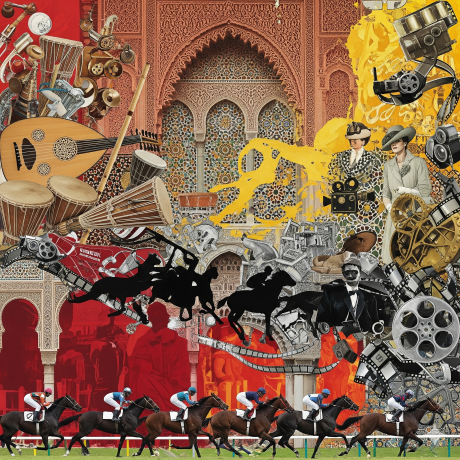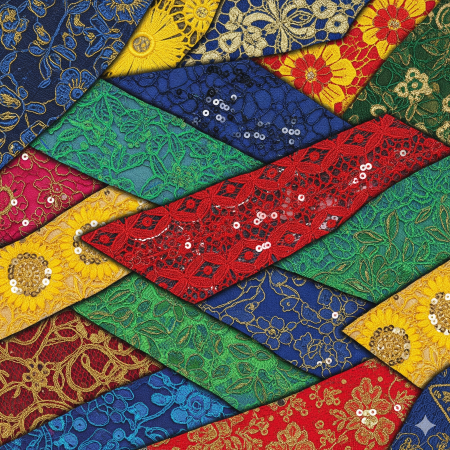The Salary Taboo: Why Africans Still Struggle to Talk About Money at Work

AUTHOR: ERIC NAMSO OF ZEAL NEWS AFRICA
in many African workplaces, one thing remains clear: talking openly about your salary is considered inappropriate—almost scandalous.
Ask a colleague how much they earn, and you’ll be met with raised eyebrows, awkward silence, or a quick subject change. Despite growing conversations around transparency, merit, and labour rights, the topic of money remains a no-go zone.
But why? The roots are both cultural and colonial
Source: Google
Our fear of discussing salary didn’t start with HR manuals or office etiquette. It’s deeply tied to culture and, in many ways, to colonially-influenced systems of power.
In traditional African societies, talking about personal wealth was frowned upon, seen as boastful or prideful. Add to that the hierarchical, top-down corporate systems inherited from colonial administrations: designed to control information and limit workers’ bargaining power, and you start to see why financial secrecy became normalised.
Silence keeps power where it is
Here’s the truth: salary secrecy benefits employers, not employees.
When no one knows what the other is earning, unfairness thrives. Workers doing the same job with the same skills might receive very different pay.
Salary silence makes it harder to challenge discrimination based on gender, age, or personal connections—issues that are still rampant across the continent.
This isn’t just a Western problem we’re mimicking—it’s a local one we’re feeding. A junior staff member in Lagos might be earning half of what their peer earns in Nairobi for the same remote work.
A female engineer in Accra might discover she’s being paid less than her male counterpart only after a chance conversation. And when someone does speak up? They’re often shamed, disciplined, or worse—fired.
We’ve normalised hustle, not fairness
Photo Credit: Google
It doesn’t help that African work culture celebrates the hustle, not the outcome.
Workers are praised for sacrificing weekends, taking on extra roles, or working “like machines”—even if their salaries stay stagnant.
There was a recent case in my neighbourhood, of a lady who was about to be put to birth, only to be neglected by her guardian. She struggled to get to the hospital where she was taking treatment. It wasn't until 1hr when the news of her death came to us.
She was tired. She struggled with the labour pain till she got to the hospital. Her mom—who was supposed to be the guardian at that dire time—said she was busy with work and she couldn't.
In her words,” God gave me this job. I have been praying for work since last year and there wasn't anything I could do. God gives and God takes.”
Many feel lucky just to have a job, and this “gratitude culture” makes it even harder to raise the subject of fair pay. Questioning salary becomes equivalent to being ungrateful or entitled.
It’s even worse for creatives, gig workers, and freelancers. Many are told to accept “exposure” or “connections” instead of proper compensation. If you ask for rates, you’re suddenly “too expensive.” And because most people are silent, it becomes hard to benchmark your worth.
Fear, shame, and the myth of privacy
There’s also fear—of losing the job, of being labelled “greedy,” or simply of standing out. Many workers are made to sign contracts that prohibit salary discussion, reinforcing the idea that this is “private information.”
But private to whom? In truth, the privacy myth protects institutions, not individuals.
The shame around money conversations also feeds the problem. Talking about your earnings, especially if they’re low, can be deeply uncomfortable. No one wants to be pitied—or judged for asking for more.
The cost of silence is inequality
This silence isn’t neutral—it’s expensive. Pay inequality grows in secret. Workers have no idea what to negotiate for. Talented professionals get frustrated, disillusioned, and eventually leave.
Entire industries become skewed. And those who need the most visibility: young people, women, entry-level staff—are the ones who suffer in the dark.
So, how do we break the taboo?
It starts with unlearning the shame. We need safe spaces, both offline and online, where African workers can talk numbers without fear.
Communities like Glassdoor or Levels.fyi may exist globally, but we need African versions. Freelancers and creatives need to post rates.
Employees need to benchmark their salaries. And employers who claim to value equity must be open to salary bands, audits, and transparency.
Organisations must stop punishing openness and start rewarding fairness. Human Resource policies must evolve beyond loyalty and silence. Transparency shouldn’t be an act of rebellion:it should be a standard.
Talking about money isn’t arrogance. It’s power.
Until we normalise salary conversations in Africa, we will continue to see cycles of exploitation, hidden biases, and underpaid brilliance.
Discussing money isn’t the problem—refusing to talk about it is.
And maybe, just maybe, when we stop whispering about our worth, we’ll finally get paid what we deserve.
Conclusion
Money isn’t just about numbers—it’s about dignity, recognition, and power. When Africans continue to treat salary talk as taboo, we enable systems that undervalue us, underpay us, and keep us divided. The culture of silence protects no one but those who benefit from unequal pay.
It’s time we reframe the conversation. Talking about your salary isn’t rude. Asking for fair pay isn’t prideful. Refusing to accept “exposure” in place of payment isn’t arrogance—it’s survival.
A cultural shift doesn’t happen overnight, but it begins with one act of courage: a conversation, a disclosure, a demand for transparency.
Workers, especially young people and freelancers, must stop seeing salary negotiation as a confrontation and start seeing it as a right. Employers, too, must stop hiding behind vague policies and take responsibility for fostering fairness.
If we truly want to build an equitable future—where talent is rewarded, not exploited—then we must speak clearly, confidently, and often about what we earn. Silence has cost us too much already.
Let’s stop whispering. Let’s talk money. And let’s talk boldly.
AUTHOR: ERIC NAMSO OF ZEAL NEWS AFRICA
You may also like...
When Sacred Calendars Align: What a Rare Religious Overlap Can Teach Us

As Lent, Ramadan, and the Lunar calendar converge in February 2026, this short piece explores religious tolerance, commu...
Arsenal Under Fire: Arteta Defiantly Rejects 'Bottlers' Label Amid Title Race Nerves!

Mikel Arteta vehemently denies accusations of Arsenal being "bottlers" following a stumble against Wolves, which handed ...
Sensational Transfer Buzz: Casemiro Linked with Messi or Ronaldo Reunion Post-Man Utd Exit!

The latest transfer window sees major shifts as Manchester United's Casemiro draws interest from Inter Miami and Al Nass...
WBD Deal Heats Up: Netflix Co-CEO Fights for Takeover Amid DOJ Approval Claims!

Netflix co-CEO Ted Sarandos is vigorously advocating for the company's $83 billion acquisition of Warner Bros. Discovery...
KPop Demon Hunters' Stars and Songwriters Celebrate Lunar New Year Success!

Brooks Brothers and Gold House celebrated Lunar New Year with a celebrity-filled dinner in Beverly Hills, featuring rema...
Life-Saving Breakthrough: New US-Backed HIV Injection to Reach Thousands in Zimbabwe

The United States is backing a new twice-yearly HIV prevention injection, lenacapavir (LEN), for 271,000 people in Zimba...
OpenAI's Moral Crossroads: Nearly Tipped Off Police About School Shooter Threat Months Ago
ChatGPT-maker OpenAI disclosed it had identified Jesse Van Rootselaar's account for violent activities last year, prior ...
MTN Nigeria's Market Soars: Stock Hits Record High Post $6.2B Deal

MTN Nigeria's shares surged to a record high following MTN Group's $6.2 billion acquisition of IHS Towers. This strategi...






